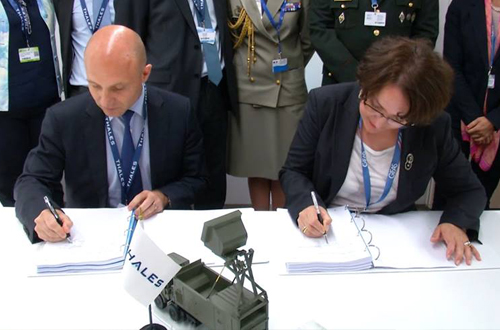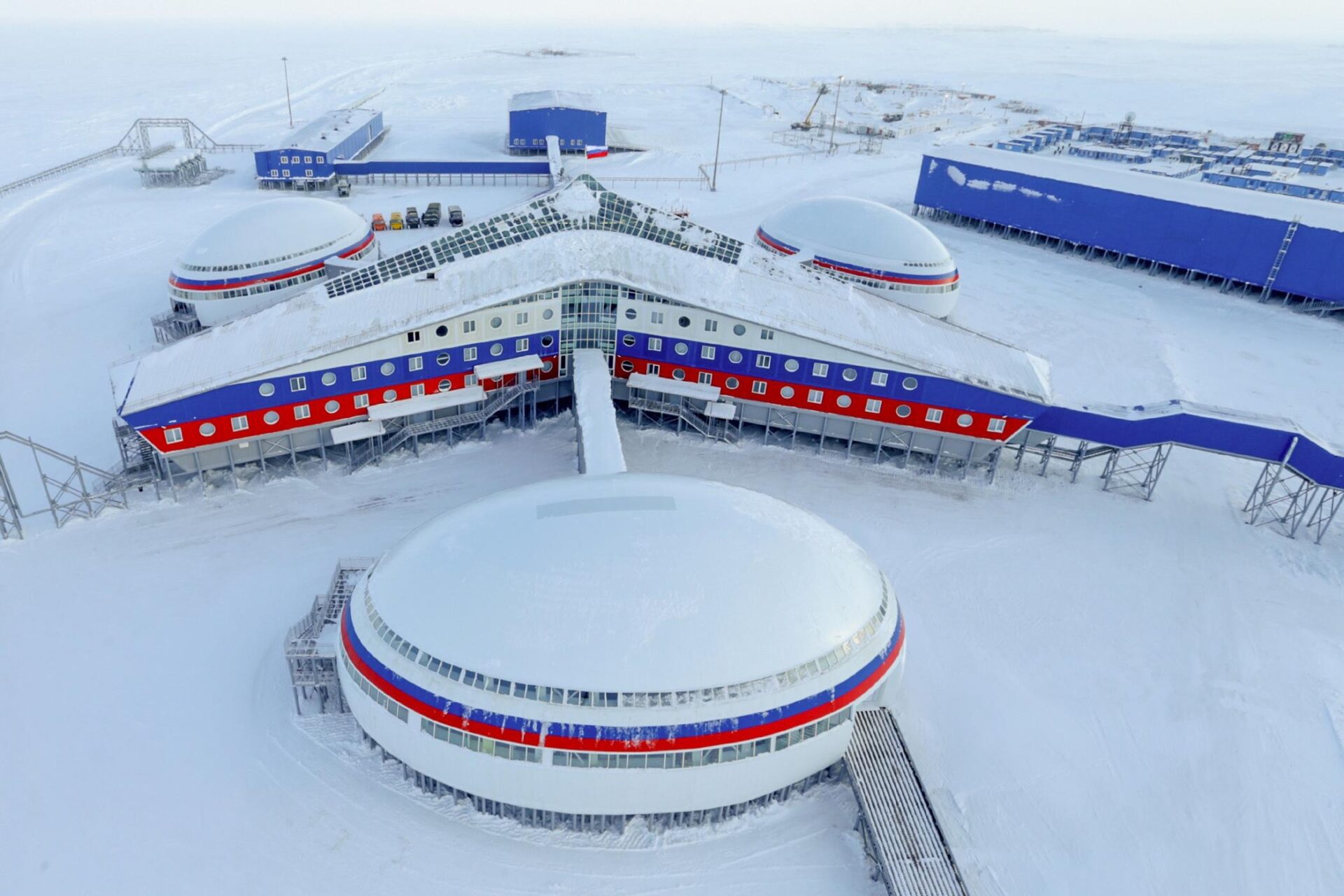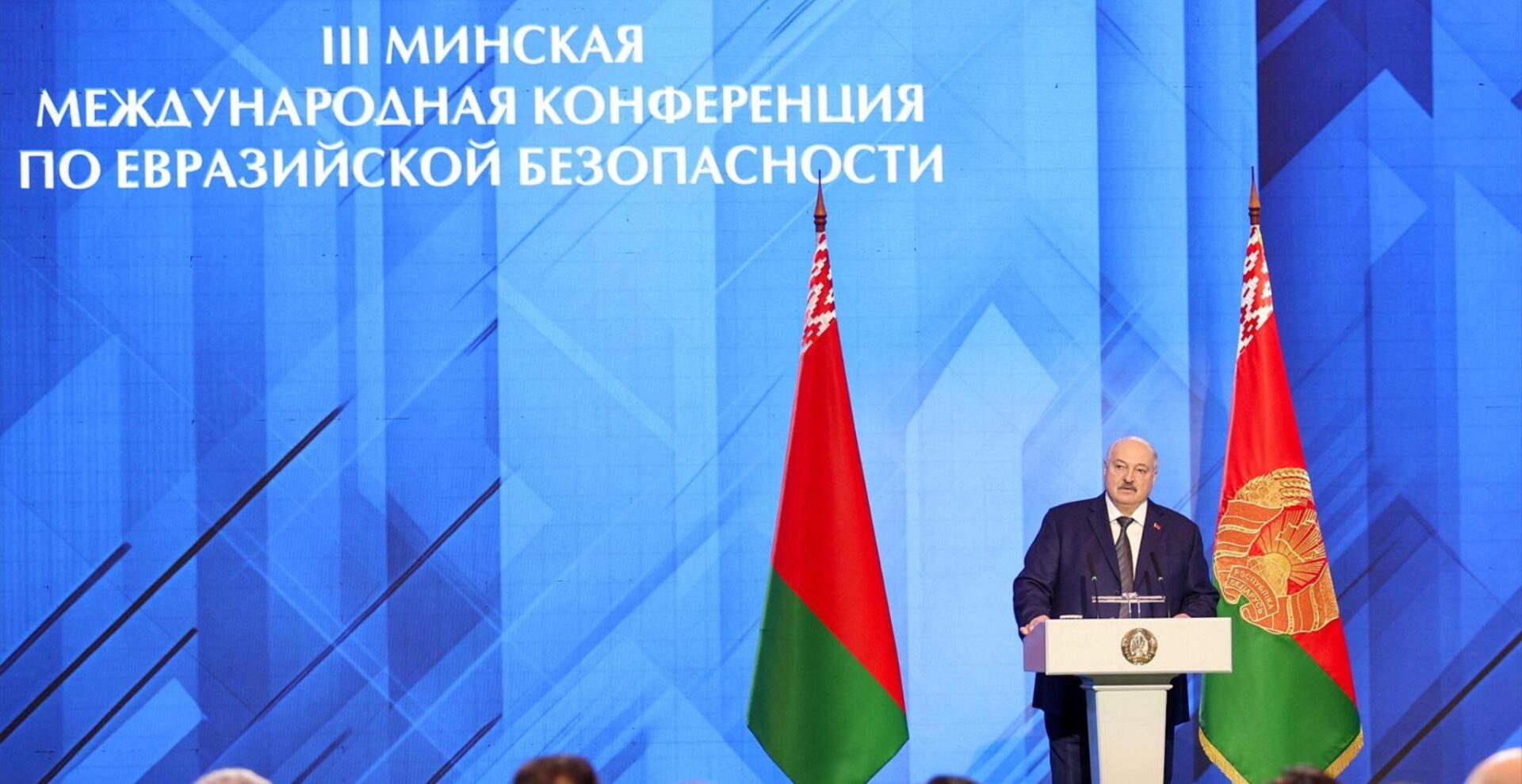
France Is Prepared to Supply Advanced Air Defense Infrastructure to Georgia
France Is Prepared to Supply Advanced Air Defense Infrastructure to Georgia
On June 15, during the Paris Air Show in Le Bourget, where important deals for arms supplies are often agreed, Georgia signed its first ever large contract with France on supplies of defense military equipment (Civil Georgia, June 16).
The description of the equipment is quite unclear, since no one, with the exception of a narrow circle of officials, knows exactly what equipment France will supply to Georgia and at what price. The Georgian Ministry of Defense only unveiled a short video and photo from the event with some important details. Georgia’s Defense Minister Tinatin Khidasheli and the CEO of ThalesRaytheonSystems for French operations, Jérôme Bendell, together signed the agreement (Civil Georgia, June 16).
So far, the French government itself has not signed the deal, causing some uncertainty about Paris’s official willingness to allow actual supplies of military equipment to Georgia; but the agreement is still an important sign. ThalesRaytheonSystems (TRS) is a joint venture of the French defense electronics group Thales and US arms maker Raytheon. The company produces a range of ground-based surveillance radars, air defense command-and-control systems, as well as cyber capabilities.
According to unofficial sources, the document signed on June 15 in Le Bourget envisages supplies of radars and other air tracking infrastructure, but not weaponry for striking at air targets. It is noteworthy that the photograph published by the ministry of defense depicts a small replica of what appears to be a TRS-produced GM 200 medium-range multi-missions radar (Civil Georgia, June 16). Minister of Defense Khidasheli told journalists, after signing the agreement, that she would return to Paris again after several weeks to sign another contract. The defense minister thereby signaled that surveillance radars are only part of the infrastructure and equipment that Georgia intends to purchase in France. Khidasheli declined to answer whether the next contract would be signed with the same company or with some other French arms manufacturer. “Information about such types of weapons procurements need to be a top state secret” to prevent the Russian government from learning their details, Khidasheli told reporters from Paris (Civil Georgia, June 16).
Under this well-intentioned pretext of secrecy, the main and most crucial question has remained unanswered: Will the second contract, which will be ready for signing “after several weeks,” allow Georgia to access systems that are not only capable of airspace surveillance, but also of shooting down hostile aerial targets? “Supplying French radars to Georgia is nothing special. Almost immediately after the five-day war with Russia [in August 2008], France supplied dual-purpose radars—that is, ones that can be used for both civilian and military purposes—to our country,” Irakly Aladashvili, the editor-in-chief of the military-analytic journal Arsenali, told Jamestown (Author’s interview, May 20).
After his controversial resignation from government, former Georgian minister of defense Irakly Alasania, who initiated negotiations with French arms manufacturers last summer, stated that the agreement he reached would have been ready to be signed by the end of October 2014. According to Alasania, the proposed contract envisaged the acquisition of “anti-aircraft and anti-missile defense systems.” Alasania said that those systems would have “provided the country with complete security, including protection from Russian short-range SS-26 ‘Iskander’ missiles” (see EDM, April 9, 2015). So at the time, at least, both anti-aircraft and anti-missile systems were being considered. However, the new minister of defense, Tinatin Khidasheli, in her comments before and after signing the June 2015 contract, never mentioned an anti-missile component. She spoke only of anti-aircraft defenses. Meanwhile, Alasania’s mentions of the Iskander missile was not on accident. Russians used it in combat for the first time on August 12, 2008. An Iskander missile armed with a cluster munition exploded at the central square of Gori, a city 29 kilometers from South Ossetia, killing dozens of civilians, including a Dutch cameraman (Interpressnews.ge, August 9, 2010).
It is unclear from Khidasheli’s comments whether the new Georgian contracts with French arms manufacturers will provide Georgia with a missile defense capability. “When the [procurement] is finalized and this [weapons system] is delivered to Georgia, we will have a capacity for the first time that will guarantee our air defense,” she said. “We can say that our air space will be maximally protected. Georgia is buying a type of weapon in use by the leading NATO [North Atlantic Treaty Organization]-member states and is regarded to be one of the most advanced types of air defense infrastructure,” the Georgian defense minister noted (Civil Georgia, June 16).
The Georgian opposition is skeptical about the “Le Bourget deal,” suspecting that the supplied arms will not be quite as potent as the government claims. Therefore, representatives from several parliamentary factions demanded the creation of a so-called “trust group.” According to the law, the ministry of defense is obliged to unveil all details of a defense contract to the members of a parliamentary “trust group” (Interpressnews.ge, June 23).
The financial side of the agreement is also being kept secret. According to Jamestown’s sources, French manufacturers agreed to provide supplies to Georgia immediately, under the conditions of an installment payment plan within the next several years.
The political content of the agreement remains the most important part of the contract, given how zealously Moscow follows military cooperation processes between the post-Soviet states and NATO members. It is hard to imagine that Paris did not take into consideration Moscow’s possible reaction to arms supplies to Georgia. Analyst Nika Imnaishvili argued: “Ukraine influenced many processes and made possible things that were considered impossible before” (Author’s interview, June 25).
Since the August 2008 war, which ended with a ceasefire negotiated by then–French president Nicolas Sarkozy, France has considered itself in a certain way responsible for the future of Georgia’s statehood. Neither Paris nor Berlin are prepared to provide Georgia with a Membership Action Plan (MAP), which would prepare the way for the country to eventually join the North Atlantic Alliance. Thus, French authorities have tried to “compensate” for their refusal on NATO membership by increasing bilateral military cooperation with Georgia. The process started while Mikheil Saakashvili still headed the country. The former Georgian president recently said that after Paris’s refusal to provide Tbilisi with a MAP, he convinced Sarkozy to supply four Eurocopter AS332 Super Puma military transport helicopters, widely considered among the best in their class, on highly favorable terms with an installment payment period of 25 years (Intermedia, June 24). However, the first such high-profile weapons system is yet to arrive in Georgia.


